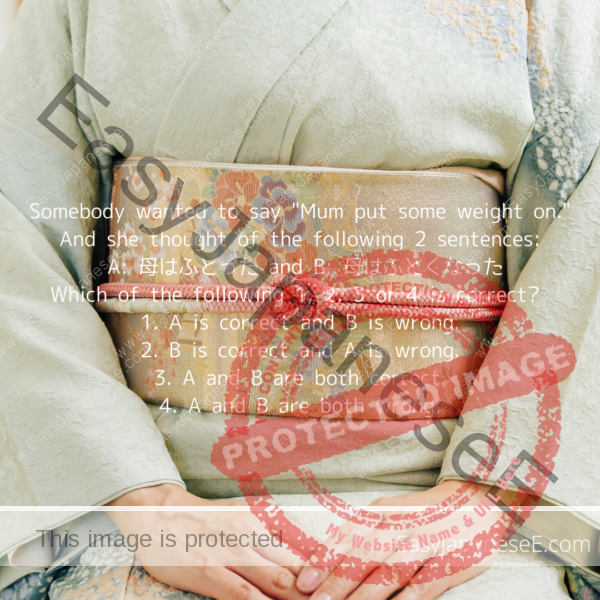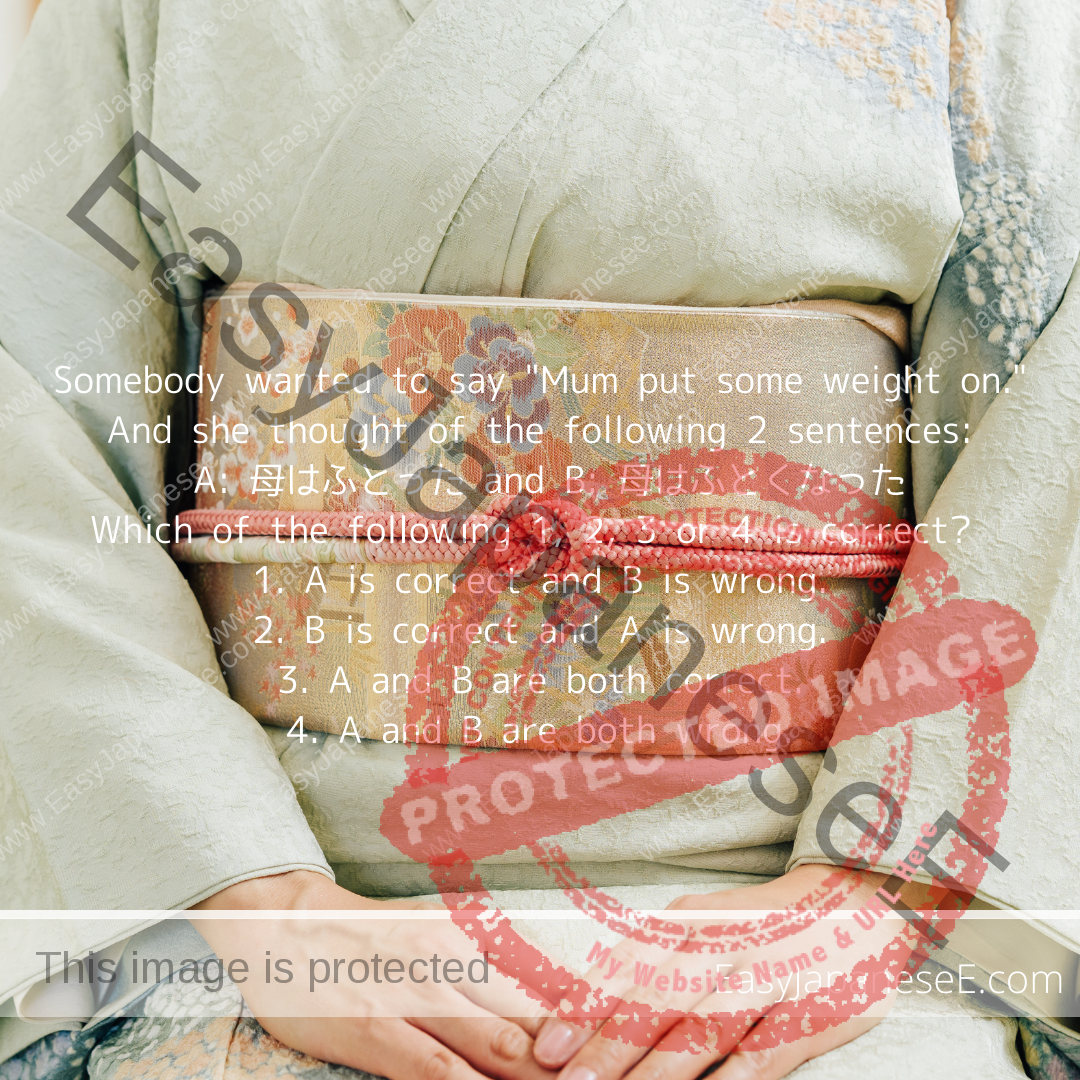
Today’s Question
Somebody wanted to say “Mum (has) put some weight on.”
She thought of the following 2 sentences:
A: 母は太った and B: 母は太くなった
Which of the following 1, 2, 3 or 4 is correct?
- A is correct and B is wrong.
- B is correct and A is wrong.
- A and B are both correct.
- A and B are both wrong.
Today’s Topic
Today’s topic is difference between 太い and 太る. If you understand the difference between the two, you will not be confused between 太い and 太っている, 太る and 太くなる ever again.
太い is an いadjective meaning:
- (for something slender like a stick, line, etc. to be) big, thick, bold, pudgy
- (for voice to be) deep
- (for attitude to be) shameless, impudent
An adjective is a word that describes an attribute of a noun, so 太い is used to describe the condition of “something” being fat/big.
太る is an intransitive verb meaning:
- (for a person or an animal) to put on weight, to get fat
- (for a person) to become rich, to acquire wealth
太る is a verb describing a change from being not fat/big to being fat/big, so if you change 太る into 太っている, 太っている should describe a condition of a person or an animal after gaining weight, i.e. “being fat/big.”
When you are describing the condition/status of being fat/big
Here what you have to remember is 太い is for an object and 太っている for a person or an animal.
This pencil is fat.
(✓)この鉛筆は太い。
(×)この鉛筆は太っている。Please draw a thick line.
(✓)太い線を引いてください。
(×)太っている線を引いてください。My legs are fat.
(✓)私の脚は太い。
(×)私の脚は太っている。My father is fat.
(?)父は太い。
(✓)父は太っている。That fat dog is mine.
(×)あの太い犬は私の犬です。
(✓)あの太っている犬は私の犬です。
(✓)あの太った犬は私の犬です。(In a contact clause, 太っている and 太った mean almost the same.)
The reason why I put “?” instead of “×” for 父は太い is that if I am simply comparing the thickness between a person’s body and a tree trunk, 太い can be used. Also, if I’m thinking of Dad’s body to be an object that should be slender, it is not wrong to use 太い there, either, although I think it’s better to avoid it as thinking of a person’s body as an object is not that nice.
When you are describing a change of becoming big/fat
Now if you want to describe a change, for things, we use 太くなる and for a person or an animal, we use 太る. (For explanation about [いadjective stem] + く + なる, please read this post.)
This branch has grown thicker.
(✓)この枝は太くなった。
(×)この枝は太った。My legs got fatter.
(✓)私の脚は太くなった。
(?)私の脚は太った。 – this gives an impression that the speaker is considering his/her own legs as an independent organism – I understand sometimes we feel like talking like that!My father put some weight on.
(×)父は太くなった
(✓)父は太った。
Answer to Today’s Question: 1
Because we are talking about Mum’s change from being thin to being big/fat, it has to be 太った.
For more information about the kanji 太, click here.

